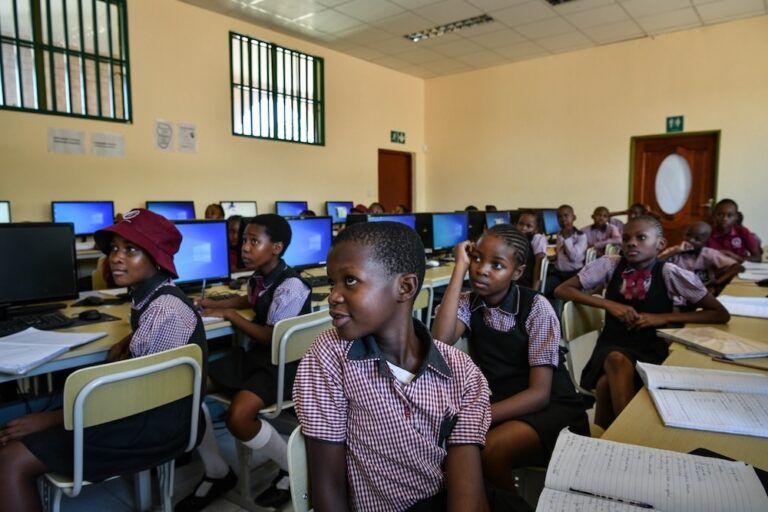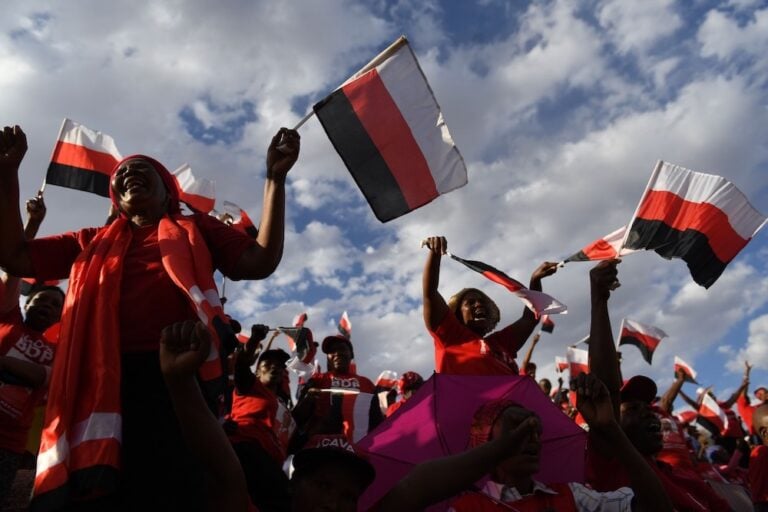(MISA/IFEX) – On Monday 9 July 2001, the virulent legal battle between the “Botswana Guardian” and “Midweek Sun” and the Botswana government began with the papers’ attorneys scoring preliminary goals. Advocate Brian Spilg for the media house convinced Justice Isaac Lesetedi that the matter was urgent after a lengthy argument on questions posed by the […]
(MISA/IFEX) – On Monday 9 July 2001, the virulent legal battle between the “Botswana Guardian” and “Midweek Sun” and the Botswana government began with the papers’ attorneys scoring preliminary goals. Advocate Brian Spilg for the media house convinced Justice Isaac Lesetedi that the matter was urgent after a lengthy argument on questions posed by the judge. In the end, the judge issued an interim order declaring that the April advertising ban did not extend to purchase or subscription of the “Botswana Guardian”/”Midweek Sun”. It also did not include a news blackout, he said.
The Johannesburg-based advocate argued that some companies and government departments were afraid of buying the newspapers. Some government departments were also scared of answering questions from “Botswana Guardian” journalists or inviting them to press events. He said that some had resorted to demanding questionnaires, which they never answered. Assistant Attorney General (Civil Division) Morulaganye Chamme opposed the application saying the “Botswana Guardian” had taken a long time before filing their case with the court. The final decision on this matter was taken in Lesetedi’s chambers after a lengthy discussion between both sides. The core argument on the advertising ban itself will be heard in August.
Spilg explained chronologically how they watched, in shock, the advertising ban unfold before they could finally decide to come to court. He told the court that their major problem was the “secretiveness and subterfuge” of Permanent Secretary to the President (PSP) Molosiwa Selepeng. He said the PSP was not clear on the extent of the ban and kept making contradictory statements. He said they only became convinced of what Selepeng meant in May, when police refused to hand in their weekly crime report. He explained that they could not come to court immediately as they had to seek representation through the Media Institute of Southern Africa (MISA) and the Media Consultative Council and Ditshwanelo, and had to wait for government responses. When the responses came, the newspaper group’s sole proprietor, William Jones, was overseas and could not act immediately, he said. “Not so,” responded Chamme. The fact that Jones went overseas was “a demonstration that he thought very little of the matter.” Chamme said there was no confusion over the advertising ban as Selepeng had made it clear that such a decision had been taken. However he said there was no written government directive authorising such a move.
When the case resumes in August, the newspapers’ attorneys are set to challenge Selepeng to disclose the name of the person who took the fateful decision. Chamme said that government withdrawal had not adversely affected the two papers. In contrast, they had blossomed, he argued, adding that the two papers had not personally made representation to the government and could not claim they were relying on MISA, because the latter were acting independently. Spilg is assisted in the matter by John Griffiths whilst Chamme appears with Rose Muchiri.


